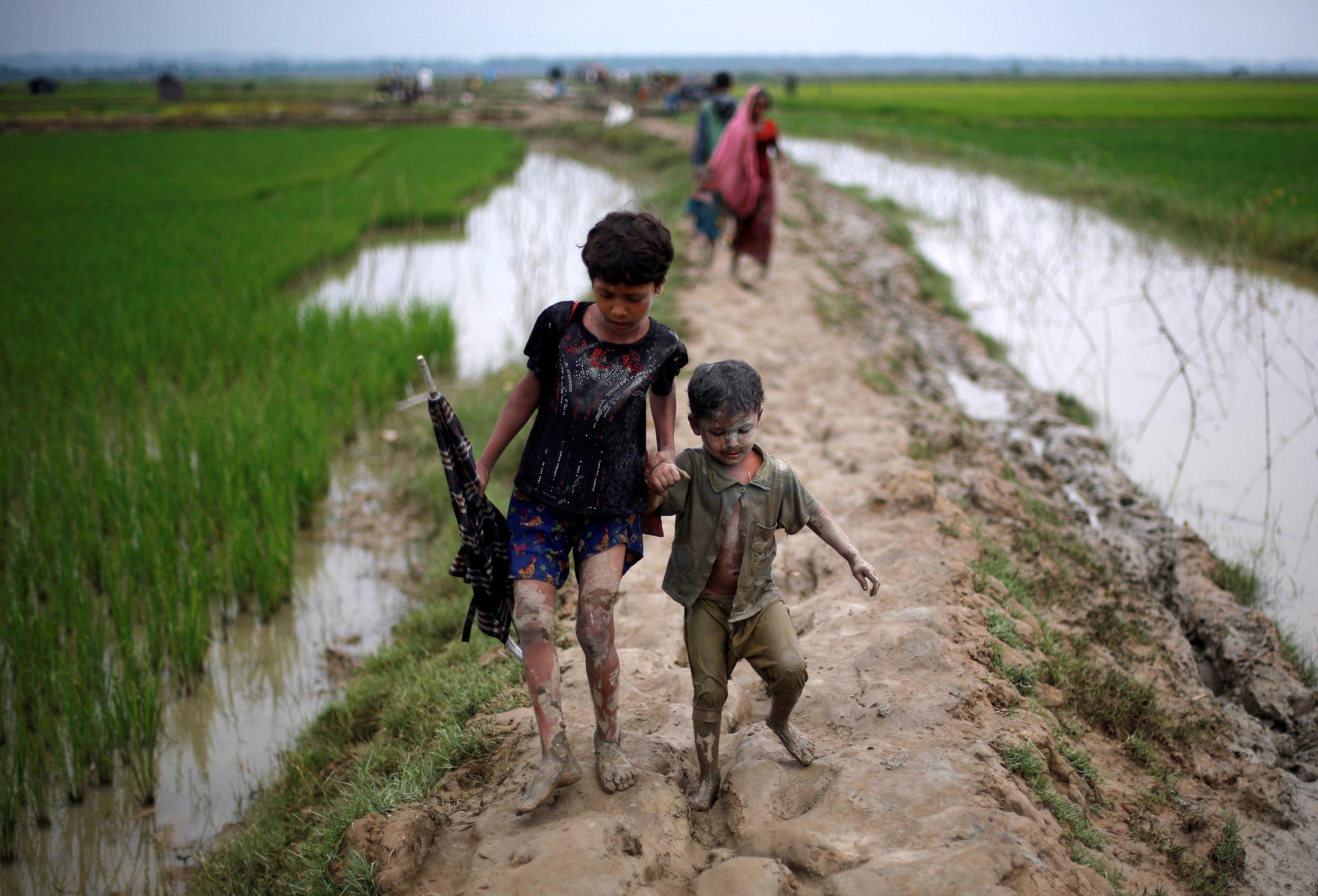More than 200,000 Rohingya child refugees in urgent need of help, warns Unicef
Many of the children are displaying classic signs of trauma, including shaking and an inability to interact with people

Your support helps us to tell the story
From reproductive rights to climate change to Big Tech, The Independent is on the ground when the story is developing. Whether it's investigating the financials of Elon Musk's pro-Trump PAC or producing our latest documentary, 'The A Word', which shines a light on the American women fighting for reproductive rights, we know how important it is to parse out the facts from the messaging.
At such a critical moment in US history, we need reporters on the ground. Your donation allows us to keep sending journalists to speak to both sides of the story.
The Independent is trusted by Americans across the entire political spectrum. And unlike many other quality news outlets, we choose not to lock Americans out of our reporting and analysis with paywalls. We believe quality journalism should be available to everyone, paid for by those who can afford it.
Your support makes all the difference.An unprecedented 200,000 child refugees have fled Burma and are now in urgent need of help, Unicef has warned, as the Rohingya crisis reaches new proportions.
Minors make up at least 60 per cent of the 330,000 Rohingya who have crossed the border to Bangladesh over the past few weeks. Highly traumatised, they are arriving malnourished and injured after walking for days, a spokesperson said.
Speaking to The Independent shortly after visiting the Burmese border, Unicef communications chief for south Asia Jean-Jacques Simon said it was hard to imagine what the "streams" of people crossing had witnessed.
"It's reaching a new proportion every day... You have to wonder when it will stop," he said.
Mr Simon said he had seen children as young as three arrive in Bangladesh without their parents. "Was it because the parents put them forward for the crossing, or was it something else?" he asked, alluding to the reports of large-scale violence.
This week, UN Secretary-General Antonio Guterres urged Burma to end the violence, which he called "ethnic cleansing."
“Grievances that have been left to fester for decades have now escalated beyond Myanmar's [Burma's] borders, destabilising the region,” he warned. “The humanitarian situation is catastrophic.”
On the ground, the scale of need is desperate, Mr Simon explained, speaking from Cox's Bazar, where tens of thousands of refugees are camping in makeshift tents and more are constantly arriving. "They need to find shelter, they need to find food."
Many of the children are displaying classic signs of trauma, including shaking and an inability to interact with other people.
"I saw two days ago two unaccompanied children, they were together," Mr Simon said. "They had obviously been in mud for a long time, they were holding each other's hands.
"It was very sad," he continued. "They were basically speechless. They were staring, we asked questions about their parents and they stared without being able to speak. They were just shaking."
Unicef is offering counselling for Rohingya children in mobile clinics that travel between refugee camps. They are given pencils and paper if they can't speak, Mr Simon said. Sometimes the children will start drawing pictures of the chaos and destruction they saw before they left.
"It's difficult for us to know what they've gone through," Mr Simon said. "We don't have access to Myanmar."
Join our commenting forum
Join thought-provoking conversations, follow other Independent readers and see their replies
Comments